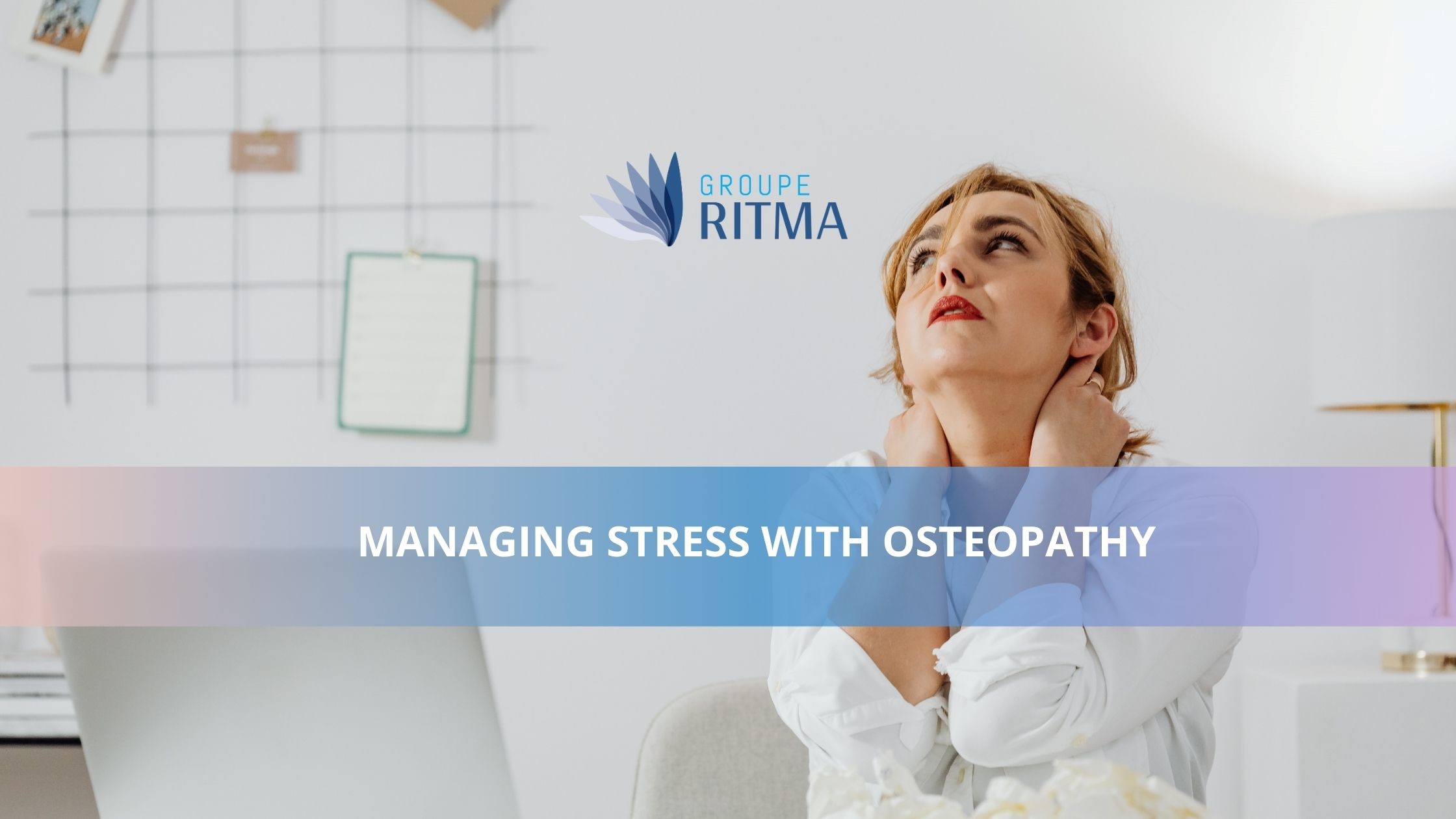
Chronicles
17 January 2025
Managing Stress with Osteopathy: A Comprehensive and Complementary Approach

In the 1930s, Dr. Hans Selye introduced the concept of the "General Adaptation Syndrome," a physiological response of the body to external stressors. This phenomenon, later renamed stress, is now recognized as a vital survival mechanism. However, when stress becomes chronic, its effects can take a significant toll on the body and mind.
Osteopathy, a holistic and preventive discipline, offers a personalized approach to alleviating stress and its physical and emotional consequences. Here, we explore the mechanisms of stress and how osteopathy can provide effective solutions.
Stress: A Vital Response
Stress is the body’s adaptive response to external stimuli. In situations of danger or pressure, the body mobilizes its resources to either confront or escape the situation. This process occurs in three phases:
- Alarm Phase: The body activates its defences, releasing adrenaline to heighten alertness and energy.
- Resistance Phase: If stress persists, the body produces cortisol to adapt. Prolonged high levels of this hormone can disrupt physiological balance.
- Exhaustion Phase: When the body’s resources are depleted, physical and psychological issues may arise.
The Impact of Stress on the Body
Stress manifests in various ways, including muscle tension, digestive disorders, fatigue, irritability, and migraines. These symptoms often stem from an overactive sympathetic nervous system, which dominates at the expense of the parasympathetic system, responsible for rest and recovery.
Osteopathy: A Path to Restore Balance
To counter these imbalances, osteopathy offers a comprehensive approach to help the body regain equilibrium. Techniques focus on:
- Regulating the Nervous System: Osteopaths work on the craniosacral axis to stimulate the parasympathetic system, promoting relaxation.
- Relieving Tension: Manipulating diaphragms, particularly the thoraco-abdominal diaphragm, improves breathing, which is often compromised by stress.
- Harmonizing the Digestive System: The solar plexus, a nerve center tied to emotional regulation, is a key focus. Relaxing this area can enhance digestion and reduce the emotional strain on the body.
Personalized Care
During osteopathic sessions, practitioners address the root causes of stress. For advanced stress leading to serious conditions, patients are referred to appropriate healthcare professionals.
In addition to hands-on techniques, osteopaths provide guidance to sustain the benefits of their care, including:
- Breathing and Relaxation Exercises: These practices help reduce tension and improve focus.
- Lifestyle and Dietary Recommendations: A balanced diet supports the production of neurotransmitters essential for well-being.
- Adapted Physical Activity: Regular exercise helps release accumulated tension.
A New Perspective on Stress
Osteopathy goes beyond treating stress symptoms. It fosters a holistic awareness and encourages clients to actively manage their well-being by reevaluating lifestyle habits.
In this way, osteopathy emerges as a valuable ally in combating stress, offering a global, preventive, and tailored response to individual needs.